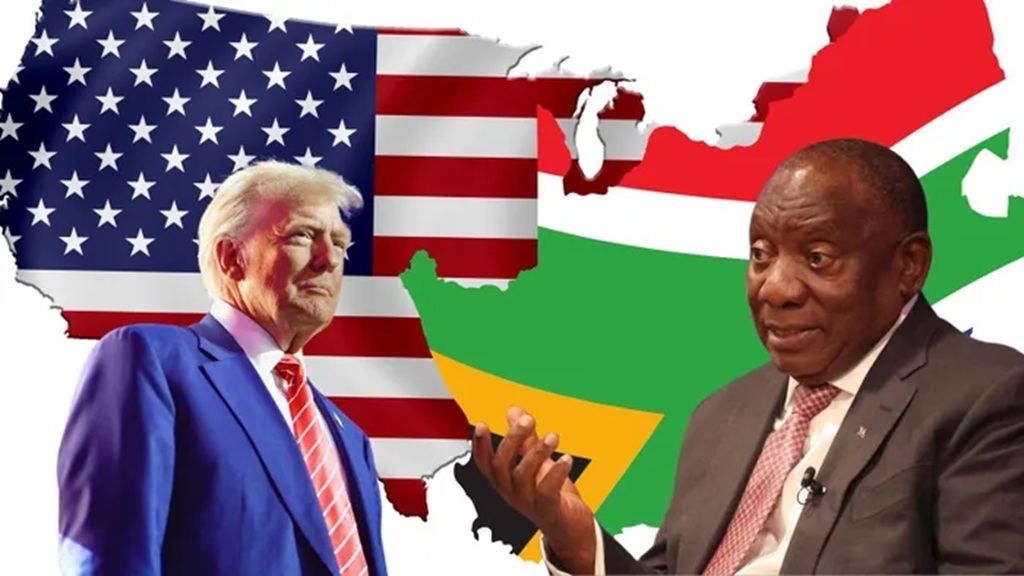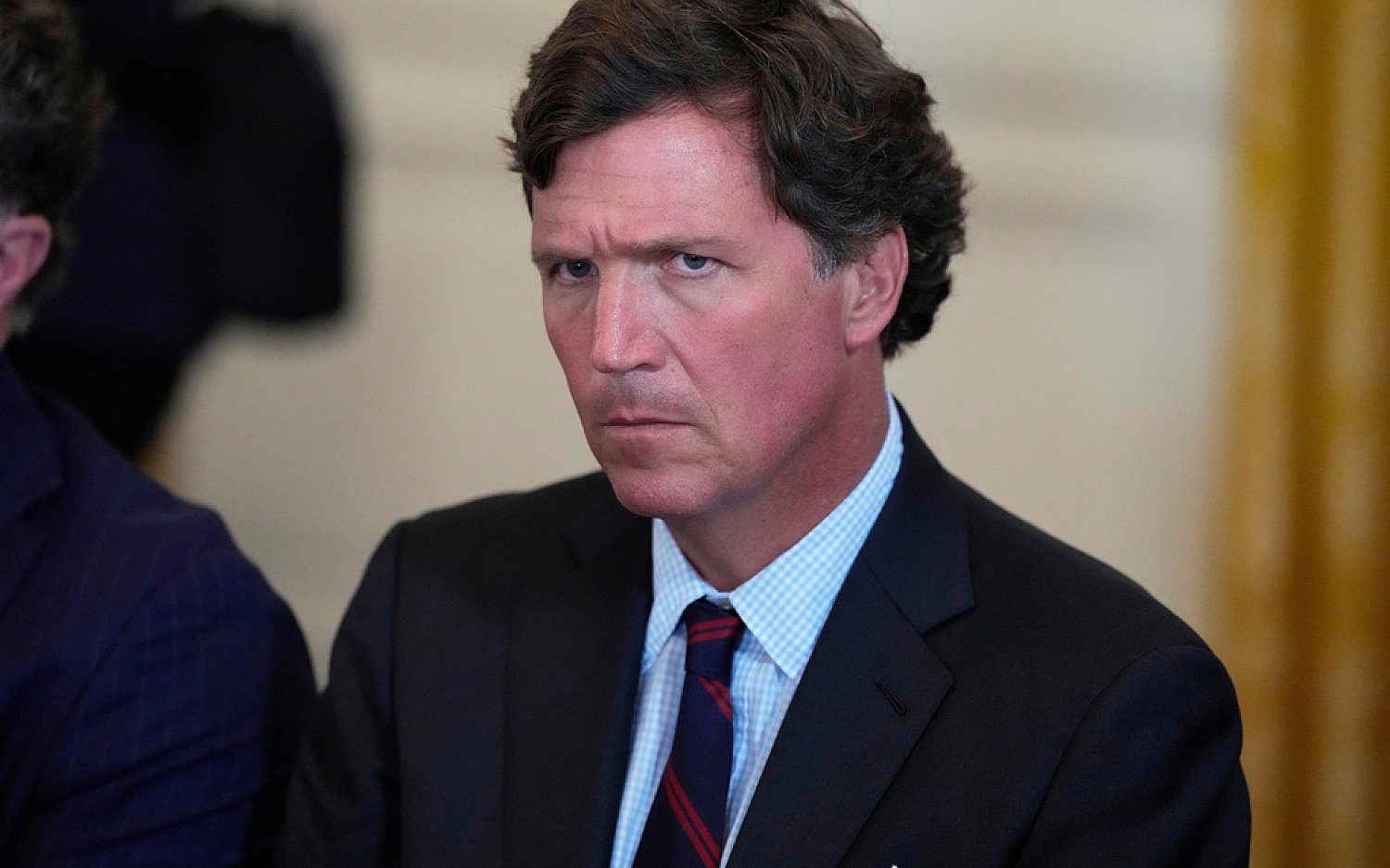News
South Africa’s Audacious Bid to Teach America a Lesson
South Africa’s Public Service Amendment Bill offers a potent lesson in democratic resilience.

CAPE TOWN, South Africa – In Washington, D.C., federal officials worry about “Schedule F,” a Trump-era idea revived to reclassify thousands of career officials as political appointees. In London, Nigel Farage’s Reform UK agitates for a “power project” to seed ministries with ideological loyalists. Across the democratic world, the professional civil service is under siege, its neutrality recast as a weakness.
Yet in Pretoria, something rare is unfolding. South Africa, a younger democracy, is doing the opposite. Its Public Service Amendment Bill (PSAB), now on the cusp of being passed by the National Council of Provinces (NCOP) following recent deliberations, aims to hard-wire professionalism into law.
It removes hiring and firing powers from ministers, hands them to career officials, and bars senior civil servants from holding party posts. In effect, South Africa is trying to legislate the very separation between politics and administration that older democracies are busy dismantling.
The Ghosts of State Capture
This move is a direct response to South Africa’s recent past. The country is still recovering from the era of “state capture,” a period when powerful networks of political elites and private business interests systematically looted state resources and hollowed out key institutions. A key enabler was the notorious policy of cadre deployment: appointing loyal party comrades to public posts, regardless of merit.
The PSAB’s design is surgical, targeting the pressure points where patronage seeps in.
What the Bill Actually Does
The headline reform transfers key human-resources powers from ministers to professional heads of department. Hiring, promotion, performance management, and disciplinary action for senior officials will be handled by Directors-General, not political bosses.
“Why would you have heads of departments if you are not going to give them their responsibility and hold them accountable?” quips Advocate Kholeka Gcaleka, the country’s Public Protector, in support of the change.
For Gcaleka, who has investigated countless cases of capture and abuse, this is a long-overdue correction: ministers will set policy and monitor delivery, while directors-general will actually run departments day-to-day and be held accountable for results.
The companion reform is a clear barrier between senior administrators and party politics. Section 36A of the PSAB will prohibit Directors-General, provincial heads, and those directly reporting to them from holding office in a political party. This is a targeted ban aimed at the very top echelons, a compromise after an earlier draft sought to ban all 1.2 million public servants from party positions.
Labour unions, led by COSATU’s Mathew Parks, blasted the early version as unconstitutional overreach, forcing the compromise that narrowed restrictions to top managers. That, says Parks, “is rational and fair and can pass constitutional muster,” aligning with recent court rulings upholding similar limits for municipal managers.
For watchdogs like Gcaleka, the logic is simple: “How do you manage the political–administrative interface if, after you leave this room, you are equals?” If a Director-General is simultaneously a party baron, their loyalty to the public could be compromised. By neutralizing these conflicted loyalties, the reform aims to ensure that senior officials serve the constitution, not party HQ.
An Independent Referee
This internal balance is reinforced by an external one. In parallel to the PSAB, lawmakers are advancing changes to strengthen the Public Service Commission (PSC), transforming it into a fully independent Chapter 9 institution with investigative and enforcement powers.
As DA lawmaker Jan Naudé de Villiers, who chairs Parliament’s portfolio committee on public service, put it, without an independent referee, meritocracy remains theoretical. The PSC’s enhanced powers give the new rules bite, deterring political overreach and giving administrators a lawful shield when they refuse improper instruction.
The Reformer’s Voice in South Africa
South Africa’s recent history proved that blurring the line between party and state breeds corruption and ineffectiveness. “The historical record provides overwhelming evidence that where democracies fuse the political and administrative, they tend towards corruption and ineffectiveness,” argues Ivor Chipkin, a public scholar of more than 30 years and executive director of the New South Institute (NSI), contending that truly autonomous, professional bureaucracies are what allow democracies to translate mandates into results.
Few people embody both the challenges and promise of reform like Yoliswa Makhasi. After 25 years in the public service, including a term as Director-General of the Department of Public Service and Administration (DPSA), she now directs the Public Service Reform Programme at the NSI.
In a 22 July hearing before Parliament’s upper house, the National Council of Provinces, Makhasi described the Public Service Amendment Bill as “a critical institutional advancement,” arguing that the state’s performance has long been undermined by blurred lines between political and administrative authority. For Makhasi, these episodes—highlighted by the Zondo Commission at state-owned entities like Eskom and Transnet—show why insulating the civil service from partisan leverage is essential.
The Bill, she argues, is designed precisely to prevent such interference, regardless of which party is in office. Her point is not abstract. It flows from years of watching how even well-intentioned political interventions can unravel carefully built capacity, and how decent administrators can be sidelined when partisan considerations intrude upon hiring, promotion, and dismissal.
Lessons Written in Scars
South Africa’s appetite for institutional hardening is not ideological; it is born of bitter experience. Over the past decade, a sprawling corruption network—exposed in detail by the Zondo Commission of Inquiry—showed how patronage appointments eroded state capacity. Eskom, the national power utility, was driven to the brink of collapse, triggering rolling blackouts that hobbled the economy.
Transnet, the freight-rail operator, faltered as contracts were captured by cronies. Even the South African Revenue Service, once a model for the continent, lost expertise and credibility after politically connected officials were installed at the top. The pattern was clear: when political loyalty eclipses competence, accountability unravels and institutions buckle.
Unlike countries that inherited professional civil services long ago and now take them for granted, South Africa treats professionalism as a fragile, hard-won achievement that must be protected in law. The PSAB is not the start but the codification of a long policy journey.
It follows the 2022 Framework for the Professionalization of the Public Service, which sketched the philosophy and standards for recruitment, development, and accountability. Where that framework provided strategy, the PSAB provides legal mechanisms designed to endure beyond any single administration.
During a recent webinar, Deputy Minister Pinky Kekana stressed that professionalization needs firm legal grounding and cannot be left to policy instruments alone.
Democratic Maturity as Debate
If democratic maturity is the habit of arguing in public about important things, then the NCOP hearings are a case study. Six provinces, including Gauteng and Limpopo, have already signalled their support for the Bill, while three, KwaZulu-Natal, Free State, and the Western Cape, are holding out.
The Western Cape, South Africa’s best-performing province by many metrics, has raised constitutional concerns that the Bill risks creating accountability without authority – a classic governance paradox.
Yet this is not obstructionism; it is part of the process. South Africa’s provinces are constitutionally empowered to scrutinize national laws, propose amendments, and test their resilience against different governance models.
The Bill’s authors answer by pointing to Schedule 2 (retained executive levers) and to the logic that professional appointments, insulated from partisan influence, ultimately make executive accountability more meaningful: politicians are judged for policy and oversight, administrators are judged for execution, and both sets of judgments are clear.
The contrast with cruder arguments for patronage is striking. When Bathabile Dlamini, a former minister and ANC women’s league former president, recently defended the practice of “rewarding loyal members with positions” as necessary for party cohesion, she gave voice to a worldview the Bill explicitly repudiates: the state exists for the public, not for party networks.
The very fact that South Africa is publicly wrestling with where to draw the line rather than doubling down on loyalty rewards is itself a marker of institutional health.
Why This Matters Beyond South Africa
Seen in a vacuum, the PSAB might read like bureaucratic housekeeping. Seen against global trends, it reads like a counter-narrative. Where some democracies are exploring how to politicize their permanent bureaucracies, South Africa is exploring how to de-politicize its own. Where others treat the apolitical civil service as an obstacle to be tamed, South Africa treats it as a public good to be protected.
This is not to say the country is blind to the dangers of an unaccountable bureaucracy. Quite the opposite: Schedule 2 explicitly empowers political executives to act against failing administration, but within a rule-bound process that aims to prevent vendetta politics. The idea is not to create a priesthood beyond scrutiny; it is to create a professional corps bound by skills, standards, and law.
The wider African context underscores that institutional innovation is not the monopoly of wealthy democracies. Rwanda’s Imihigo performance contracts have aligned incentives with results; Kenya’s digitized Huduma centres have streamlined service delivery and cut opportunities for petty patronage; and, within South Africa, the Western Cape’s performance culture shows that professionalization pays. The PSAB is an attempt to legislate those lessons nationally, knitting together merit, accountability, and an independent referee.
The Human Stakes: Service Delivery and Trust
While it is tempting to treat a bill about appointments and schedules as technical, said de Villiers. “The human consequences of administrative weakness are felt in clinics without medicine, classrooms without teachers, water systems that fail, roads that crumble, and permits that never arrive.”
South Africans do not experience “governance failure” in footnotes. They live it in rolling blackouts, in watching ambulances arrive too late, in permits that never materialize. The PSAB’s wager is that competence beats proximity: that an administrator promoted for skill and track record will steward systems better than one promoted because a party committee deemed them loyal.
Institutional memory is an asset, acting appointments and constant churn destroy it. Clear lines of authority help fix problems faster; blurred lines ensure that everyone is “in charge” and no one is responsible. If the reforms work as designed, citizens, not officials, are the ultimate beneficiaries.
Politicians vs Professionals: Striking a Balance
Reforming the engine of government inevitably stirs debate about power and accountability. Not everyone is cheering the diminution of ministerial influence. The Western Cape Government (WCG), run by the opposition Democratic Alliance (DA), has emerged as one of the most vocal critics of the Public Service Amendment Bill—somewhat unexpectedly, given the DA’s loud opposition to ANC cadre deployment.
Dr Harry Malila, the province’s Director-General, warns that stripping ministers of hiring powers could reduce them to bystanders. “How can executives be held accountable if they can’t choose their own top team?” he asks. The WCG broadly supports professionalization but opposes the Bill in its current form, arguing that devolving HR management from executives to heads of department limits oversight and risks weakening governance coherence under section 125 of the Constitution. During submissions, the province advocated for clearer definitions (e.g., of the Minister’s ‘functional area’) and a balanced approach.
Supporters of the reform counter that accountability is not lost, it is just being realigned. Under the new system, Ministers will still set the strategic direction and can hold Directors-General to account via performance agreements and oversight mechanisms.
Crucially, the Bill explicitly provides a process for Ministers to intervene if a DG is underperforming; they may issue a directive and ultimately recommend dismissal if incompetence is proven. This was a deliberate concession to avoid creating untouchable mandarins.
De Villiers, who also chairs Parliament’s portfolio committee on public service, explains: “You don’t want a situation where every time a new minister comes in, they just fire the DG to bring in their own people—that creates instability. But the minister can still write a directive to a DG and say, you are failing at your job,” triggering an inquiry and potential removal.
Some purists wanted no political involvement at all in firing officials, “but I personally feel the ability of an executive authority to actually hold a DG to account must be legislated… when done correctly it is not political overreach.” De Villiers envisions the strengthened PSC stepping in as an independent watchdog to investigate any frivolous ministerial actions, ensuring checks and balances.
Should the Bill become law, Malila anticipates the first tangible improvement for Western Cape residents as greater consistency and speed in filling critical senior management positions, streamlining recruitment and enhancing service continuity.
As America toys with politicizing its bureaucracy and Britain entertains loyalist staffing schemes, South Africa is betting that democracy’s durability rests not on party muscle, but on the quiet competence of those who serve.
By: Fidelis Zvomuya, New South Institute
Related News:
China’s Multi-Billion Dollar Push to Shape U.S. Media and Academia
News
Austin Tucker Martin Who Was He And Why Was He at Mar-a-Lago?

PALM BEACH, Florida – A serious security incident took place early Sunday morning, February 22, at President Donald Trump’s Mar-a-Lago resort. U.S. Secret Service agents, working with Palm Beach County deputies, fatally shot 21-year-old Austin Tucker Martin of Cameron, North Carolina.
Officials say Martin crossed into a secure area while carrying a shotgun and a fuel can, which triggered an immediate law enforcement response. At the time, President Trump and First Lady Melania Trump were in Washington, D.C., at the White House, so they were not at risk.
The shooting adds to ongoing concerns about security tied to the president, after assassination attempts reported in 2024. Investigators are still working to understand what drove the breach, and the FBI is leading the case. Officials have described the event as an unauthorized entry that turned into a possible threat.

Who Was Austin Tucker Martin?
Austin Tucker Martin was 21 and lived in Moore County, North Carolina. Family members and people who knew him described him as quiet and creative, and they said they were unaware of any violent past or political extremism.
- Life in Cameron: Martin lived with his parents and older brother in Cameron, a small town with a population of about 244, based on the 2020 Census. He had finished high school and recently started a small art business that focused on hand-drawn golf course artwork.
- What relatives said: Family members described him as calm and non-aggressive. His cousin, Braeden Fields, told reporters Martin “doesn’t even know how to use a gun. He’s never used a gun.” Fields also said Martin didn’t show much interest in politics and never seemed drawn to weapons or extreme views.
- Home and community reaction: Public records list him at a four-bedroom, ranch-style home. Neighbors in the area said they felt stunned by the news, especially since his family reported him missing only hours before the incident.
The family reported Martin missing to Moore County authorities around the same period as the breach. Some reports say he may have traveled south and obtained the shotgun along the way. The Moore County Sheriff’s Office has not reported any known criminal history for him.

What Happened at Mar-a-Lago
Authorities say the incident happened shortly after 1:30 a.m. Security spotted someone entering the inner perimeter near the north gate as another vehicle was leaving.
- Two U.S. Secret Service agents and a Palm Beach County sheriff’s deputy confronted Martin.
- Officials say he had what appeared to be a shotgun and a gas can (fuel can).
- Officers ordered him to drop the items.
- Sheriff Ric Bradshaw said Martin put the gas can down, but then raised the shotgun into a “shooting position.”
- The agents and deputy fired, and Martin died at the scene.
- No officers were hurt.
- Investigators later found a weapon box in Martin’s vehicle.
The Secret Service said agents acted to protect the secured area. Since Trump was not at Mar-a-Lago, no protectees were directly threatened.
Family Reaction: Grief and Confusion
Relatives spoke publicly in the hours after the shooting and said they could not understand how the situation happened.
- Braeden Fields told several outlets, including ABC affiliate WTVD, that Martin’s actions didn’t match who he was. Fields said he was “shocked” and described Martin as gentle and inexperienced around guns.
- The family began searching after reporting him missing on February 21 or early February 22, and they did not know he had traveled to Florida.
- Neighbors in Moore County said the news hit hard, since the family had recently asked for help finding him.
- Public comments from his parents have been limited so far, but relatives have described deep grief and confusion.
Investigators are also looking into possible mental health issues or other personal factors, since relatives say his behavior did not fit the usual pattern of political threats.
What the FBI and Secret Service Have Said
Federal and local officials moved quickly to confirm the shooting and explain the response.
- Secret Service spokesman Anthony Guglielmi said agents and a local deputy shot an intruder after he presented an immediate threat.
- The agency said no protectees were on the property, and officers contained the breach quickly.
- The FBI is leading the investigation and publicly identified Martin, while noting that details remain limited during the active case.
- The FBI National Press Office said agents are building a psychological profile and asked nearby residents to check security video that could help.
- Sheriff Bradshaw described the timeline in a press briefing and said officers fired only after Martin raised his weapon.
For now, investigators have not confirmed ties to any broader plot or organized group. As the FBI and Secret Service continue their review, the death of Austin Tucker Martin, a young artist from rural North Carolina, leaves painful questions about what changed so quickly and how a security response ended in tragedy.
Trending News:
Tech Titans Flee California to Low-Tax Havens Like Florida
News
Tucker Carlson Attacked By Pro-Israel Groups Over Airport Detention Claims

TEL AVIV – A fast-moving dispute has split parts of the American right after political commentator Tucker Carlson said Israeli security officials at Ben Gurion International Airport detained him and members of his production crew. Carlson said the airport incident happened soon after he filmed a tense interview with U.S. Ambassador to Israel Mike Huckabee on February 18, 2026.
Carlson, who often criticizes U.S. foreign policy and continued military and financial support for Israel, called the encounter “bizarre” and hinted it may have been political. Israeli officials, along with Huckabee, rejected that framing and said the interaction followed normal security steps and was handled privately.
The Alleged Incident at Ben Gurion Airport
Carlson said he flew to Israel to record an interview with Huckabee inside the airport. He also said he never left the Ben Gurion complex before boarding a private flight out. In comments shared with outlets including The Daily Mail and The New York Post, Carlson claimed:
- Airport staff took passports from him and his team.
- His executive producer was taken into a separate room.
- Security officers questioned them about the Huckabee interview, including “what we spoke to Ambassador Huckabee about.”
He described the experience as out of the ordinary and suggested it may have been a response to his tough questions during the interview. Later, in a follow-up video posted on his own platform, Carlson repeated the claim and said producers got “the third degree.” He also said officials held their passports while asking about the conversation topics and their political views.
Israeli officials disputed Carlson’s account and offered a different version:
- The Israel Airports Authority (IAA) said Carlson and his group “were not detained, delayed, or interrogated.”
- The authority said staff “politely asked a few routine questions,” consistent with standard procedures used for many travelers.
- According to the IAA, the conversation took place in a VIP lounge for privacy, not as punishment.
On social media, Ambassador Huckabee backed that explanation. He said passport checks and security questions are common for people arriving in or leaving Israel.
Meanwhile, security footage circulated online and spread quickly. The clips show Carlson smiling, signing documents, posing for photos with airport staff, and hugging an employee. Critics say those images clash with the idea of a hostile detention.
Backlash from Pro-Israel Factions
Tucker Carlson’s story triggered a sharp reaction from pro-Israel voices across social media and the press. Many accused him of stretching the facts or making the situation sound worse to stir anti-Israel sentiment.
- Former Israeli Prime Minister Naftali Bennett insulted Carlson and accused him of inventing the harassment claim after only a short airport stop.
- Pro-Israel groups and commentators pointed to the episode as another example of what they call Carlson’s ongoing hostility toward Israel.
- Outlets such as The Jerusalem Post and Times of Israel highlighted the footage and argued it undercuts the “detention” storyline, with some calling the controversy a publicity play.
The argument also revived older claims that Carlson promotes antisemitic ideas, especially because he regularly challenges U.S. aid and support for Israel’s military actions. Critics often cite:
- His comment described Christian Zionism as a “brain virus.”
- His interviews with figures accused of antisemitism.
- He claims that pro-Israel lobbying groups have undue influence in U.S. politics.
In late 2025, one advocacy group labeled Carlson its “Antisemite of the Year” after he criticized Israel’s actions in Gaza and drew attention to AIPAC’s role in Washington. Carlson has rejected the label and says his views come from “America First” politics, not prejudice.
The Contentious Huckabee Interview
The airport dispute soon took over the news cycle, but it was also tied directly to the interview itself, which came out shortly after the travel incident. During the more than two-hour conversation, Carlson pressed Huckabee on several topics, including:
- U.S. military aid to Israel during ongoing conflicts
- Religious arguments used to support territorial claims
- Treatment of Christians in the region
- Risks of wider escalation in the Middle East, including with Iran
At one point, Carlson challenged Huckabee over whether he places Israel’s interests above America’s. That exchange turned heated. Huckabee defended strong, consistent U.S. backing for Israel, while Carlson argued that the alliance can drain resources and pull the United States into conflicts it doesn’t need.
The discussion also put a spotlight on a growing split within Republican and conservative circles over Israel policy. In that debate, Carlson often represents a more isolationist camp that distrusts foreign commitments.
Tucker Carlson’s Evolving Stance on Israel
Carlson has long opposed open-ended U.S. involvement overseas. Since leaving Fox News, he has sharpened his focus on Israel-related topics, including:
- The scale of U.S. aid, which he has described as funding Israel’s “war machine.”
- The influence of lobbying groups on U.S. lawmakers
- Arguments about divided loyalties and how U.S. leaders set foreign policy priorities
Supporters say these are fair questions about spending and alliances. On the other hand, critics say parts of his framing echo old antisemitic themes, especially when he hints at hidden control or undue influence.
Because of that history, the airport claims poured gasoline on an already tense fight. Pro-Israel critics argue Carlson played the victim to attack Israel, while his allies say the backlash proves powerful interests try to shut down dissent.
Reactions and Implications
Online reaction split along familiar lines:
- Pro-Palestinian and anti-intervention users praised Carlson for pushing hard questions.
- Pro-Israel commentators mocked the “detention” claim as routine screening and said he lied.
Overall, the episode shows how divided American conservatives have become on foreign policy, especially when Israel and U.S. aid come up. Carlson still reaches a huge audience, so these clashes keep shaping how people talk about alliances, military support, and political influence.
So far, neither Carlson nor Israeli officials have signaled additional steps. Still, the dispute has reopened scrutiny of Carlson’s rhetoric and where Americans draw the line between criticizing Israel and crossing into prejudice.
Related News:
Tucker Carlson and Staff Allegedly Detained in Israel, Claims Passports Were Taken
News
US Fighter Jets Scrambled to Intercept Russian Military Aircraft Near Alaska

ANCHORAGE, Alaska – NORAD launched U.S. fighter jets and support aircraft Thursday after detecting five Russian military planes operating inside the Alaskan Air Defense Identification Zone (ADIZ).
The encounter took place near the Bering Strait off Alaska’s west coast. Officials said the aircraft did not enter U.S. or Canadian sovereign airspace. Instead, they described the intercept as a regular air defense mission, not an escalation.
What NORAD tracked and intercepted
Early Thursday, NORAD sensors picked up and followed a small Russian formation. The command identified the aircraft as:
- Two Tu-95 Bear long-range bombers
- Two Su-35 fighter jets
- One A-50 airborne early warning and control aircraft (often compared to the U.S. E-3 Sentry)
The planes flew inside the Alaskan ADIZ, a buffer area in international airspace. Aircraft in this zone are expected to identify themselves so North American forces can keep track of activity near the border.

US aircraft involved in the response
After confirming the track, NORAD sent a mix of aircraft from Alaska and other locations, including:
- Two F-16 Fighting Falcon multirole fighters
- Two F-35 Lightning II stealth fighters
- One E-3 Sentry airborne warning and control aircraft
- Four KC-135 Stratotanker aerial refueling aircraft
US crews intercepted the group, visually confirmed each aircraft, and stayed with them until they left the ADIZ. The mission focused on observation and control, with no reported issues.
In its statement, NORAD said Russian flights in the Alaskan ADIZ happen often and are not viewed as a direct threat. The Russian aircraft stayed in international airspace for the full event.

Russian flights near Alaska are a regular pattern.
Intercepts like this have become a familiar part of Arctic and sub-Arctic operations, especially near the Bering Strait. That area matters because Russia and the United States sit only a few miles apart at their closest point.
Recent examples include:
- September 2025: NORAD tracked four Russian aircraft (Tu-95s and Su-35s) in the ADIZ, sending F-16s, an E-3, and KC-135 support.
- August 2025: US forces responded to multiple flights involving a Russian Il-20 reconnaissance aircraft over several days.
- Early 2025: Similar bomber-and-fighter packages operated near the zone during long-range training flights.
Russia often describes these sorties as scheduled training patrols over neutral waters, sometimes supported by aerial refueling. Meanwhile, US and Canadian forces treat them as chances to practice detection, identification, and escort procedures.
This latest intercept comes during a wider global strain and rising interest in the Arctic. Still, officials framed the flight as routine and contained.

Why the Alaskan ADIZ matters
The Alaskan ADIZ adds an early layer of warning beyond national airspace. It gives NORAD time to spot aircraft, confirm what they are, and respond in an organized way.
NORAD is a joint US-Canadian command based at Peterson Space Force Base in Colorado. Its air defense toolkit includes ground-based radars, fighter units, airborne surveillance, and coordination with partners.
The aircraft mix used in this intercept reflects that layered approach:
- F-35 Lightning II: Stealth fighters with advanced sensors for safe intercept and tracking.
- F-16 Fighting Falcon: Flexible fighters commonly used for identification and escort.
- E-3 Sentry: Airborne radar and command platform for broad-area awareness.
- KC-135 Stratotanker: Refueling support that keeps jets on station longer in remote areas.
Together, these assets help NORAD keepan eyes on approaching aircraft without raising the temperature.
What it signals amid rising Arctic attention
Even when flights stay professional, they show how active the Arctic has become. As sea ice changes, interest has grown in new routes and resources, and Russia has expanded its military footprint in the region. That has kept US and NATO planners focused on northern defense.
NORAD’s quick response reinforced that North American approaches will be monitored and managed. Officials reported no unsafe maneuvers and no communication problems, matching the tone of many past intercepts.
The mission ended normally, with the Russian aircraft leaving the ADIZ as expected. This report is based on NORAD’s official release and defense sources confirming details of the February 19-20, 2026, event.
Trending News
Tulsi Gabbard’s Explosive Revelations on Russia Collusion Hoax Shake Washington
-

 Crime2 months ago
Crime2 months agoYouTuber Nick Shirley Exposes BILLIONS of Somali Fraud, Video Goes VIRAL
-

 China4 weeks ago
China4 weeks agoChina-Based Billionaire Singham Allegedly Funding America’s Radical Left
-

 Politics3 months ago
Politics3 months agoIlhan Omar’s Ties to Convicted Somali Fraudsters Raises Questions
-

 News3 months ago
News3 months agoWalz Tried to Dodges Blame Over $8 Billion Somali Fraud Scandal
-

 Crime3 months ago
Crime3 months agoSomali’s Accused of Bilking Millions From Maine’s Medicaid Program
-

 Crime3 months ago
Crime3 months agoMinnesota’s Billion Dollar Fraud Puts Omar and Walz Under the Microscope
-

 Politics2 months ago
Politics2 months agoIlhan Omar Faces Renewed Firestorm Over Resurfaced Video
-

 Business2 months ago
Business2 months agoTech Giant Oracle Abandons California After 43 Years




























